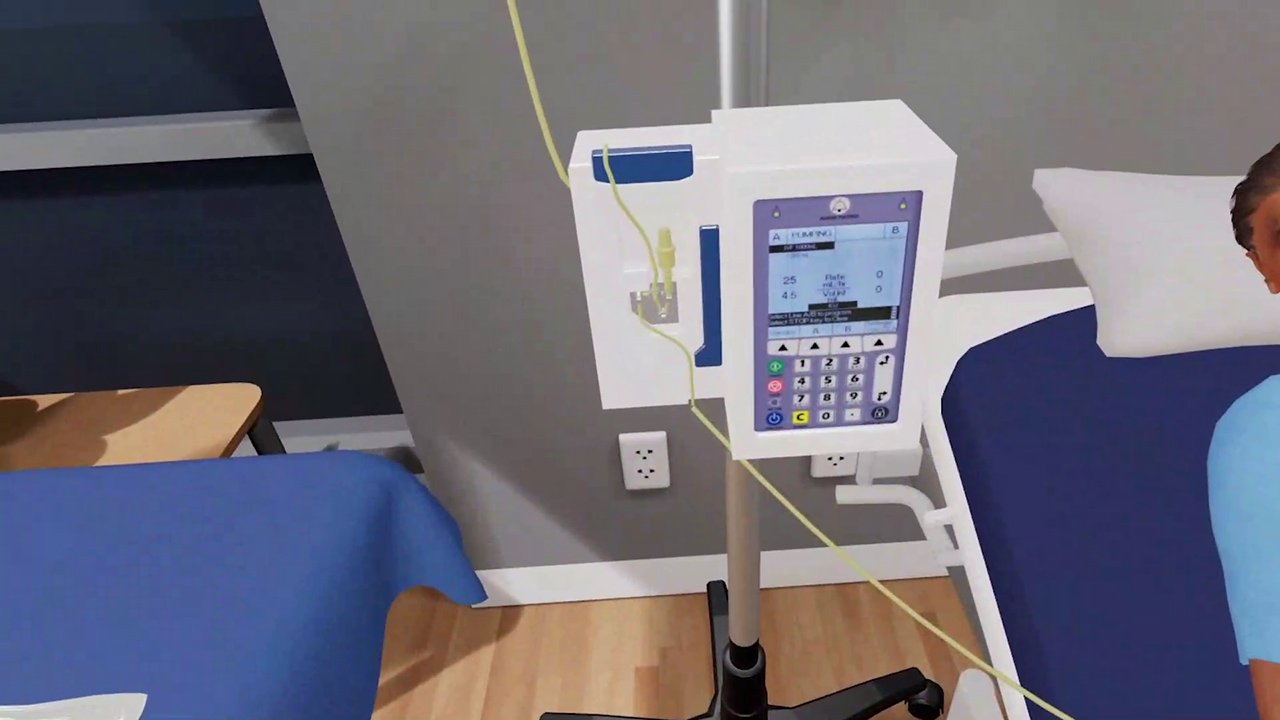IV Piggyback Administration
Sara William is 68 years old. Her doctor has ordered to start her on antibiotics using the IV Piggyback Administration. Sara already has a normal saline 1liter bag running through a regular IV pump at 100mls/hr.
This IV Piggyback Administration VR simulation is designed to provide healthcare professionals adequate practice in proper IV piggyback setup. Both training and assessment modes are available that help practice the skill and assess the skills acquired.
- Demonstrating standard technique of spiking an IV bag
- Demonstrating proper method of programming IV pump
- Educating the patient on proper aftercare instructions
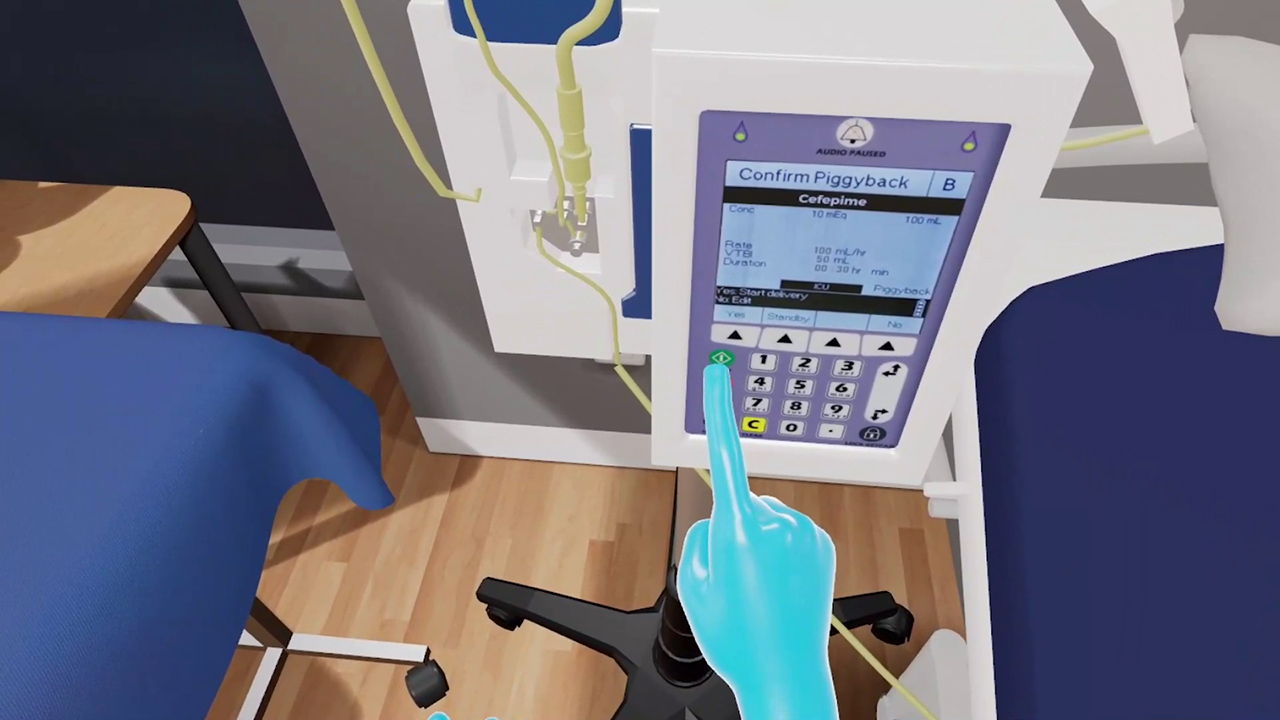
- Standard 42. Administration set change. Infusion therapy standards of practice. (2016). Journal of Infusion Nursing, 39, S84–S85. (Level VII)
- Infusion Nurses Society. (2013). “INS position paper: Recommendations for improving safety practices with short peripheral catheters.
Customize Your Program
Get rid of the editor. Adopt in-VR customization.
MedVR Education is bringing to you in-VR customization that will enable you to customize your procedural simulations by making selections from a range of feature choices.
- Select patient from a diverse background
- Choose preferred virtual environment
- Select equipment used in the procedure
- Modify difficulty level of the assessment mode
- …..many more to come
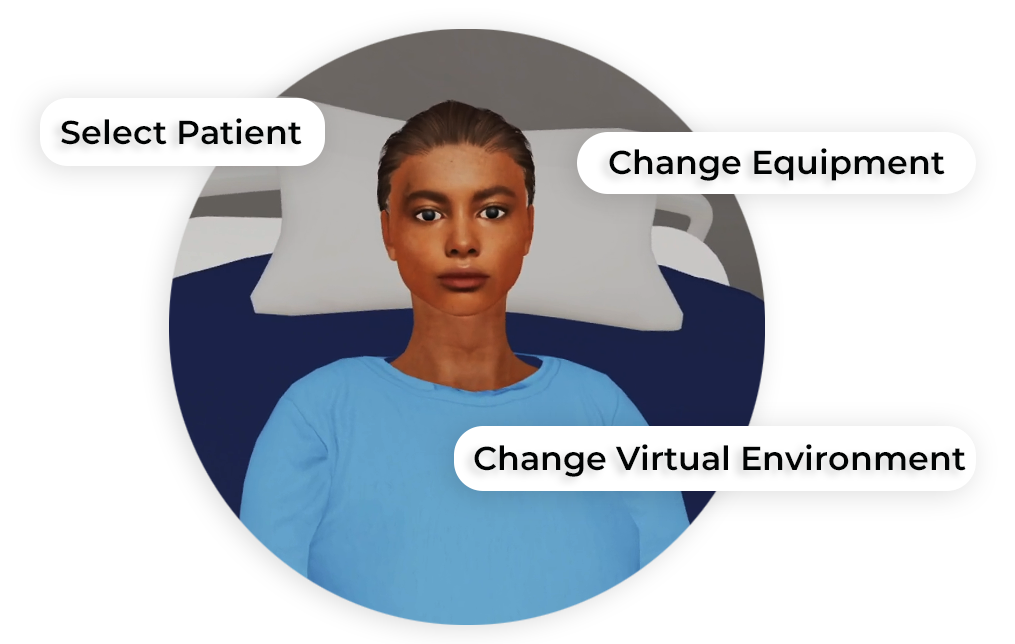
 Multi-playerSessions
Multi-playerSessions Physics-based Interactions
Physics-based Interactions
Core Skills Training
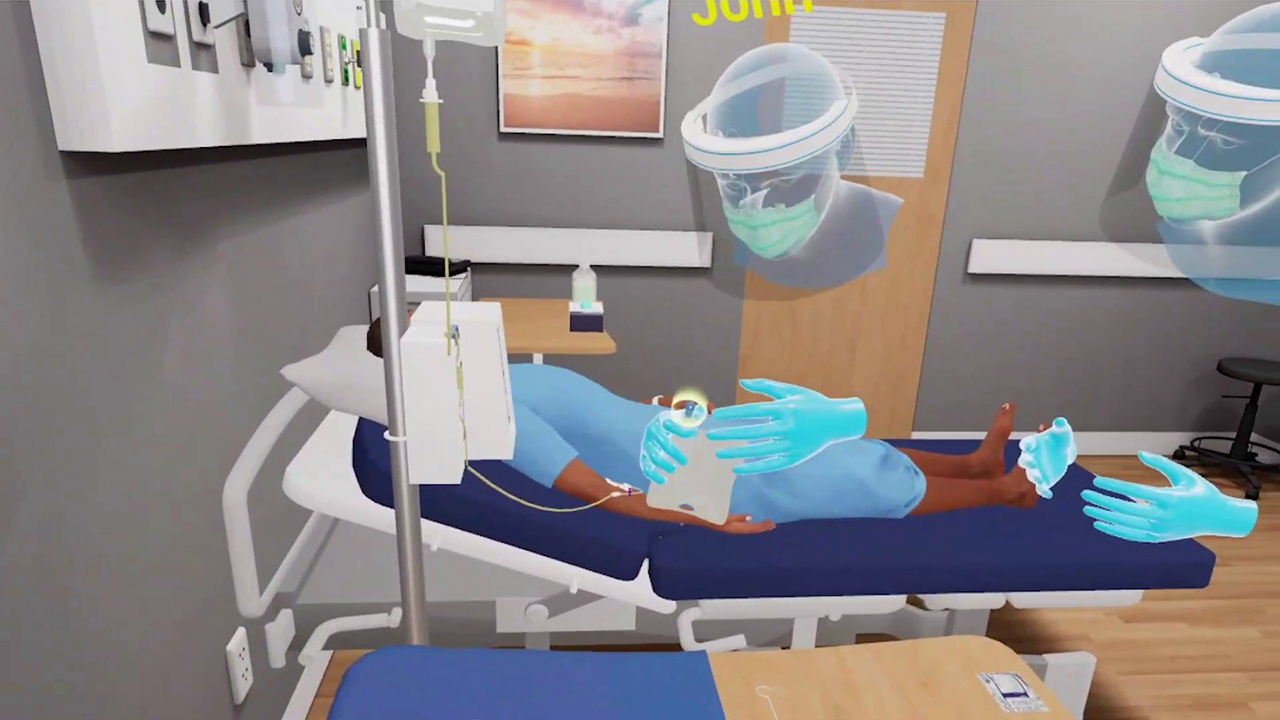
IV Piggyback Administration
In this VR simulation, the learner will begin the procedure by confirming the identity of the patient and enquiring about any possible allergies. After confirming the expiration date of the medicine, the learner will proceed with the set up. As part of the set up procedure, the learner will perform steps like labeling the tubing, securing the roller clamp, inserting the tubing spike in the port and adjusting height of primary IV fluid bag. The leaner will finally program the pump for secondary infusion rate.
Training
With prompts, guidance and affordances learners are hand-held through the process to practice the procedure in a virtual environment with a virtual patient.
- Photorealistic virtual environment
- Physics-based interactions
- Detailed instructions
- Adequate affordances to assist in task completion
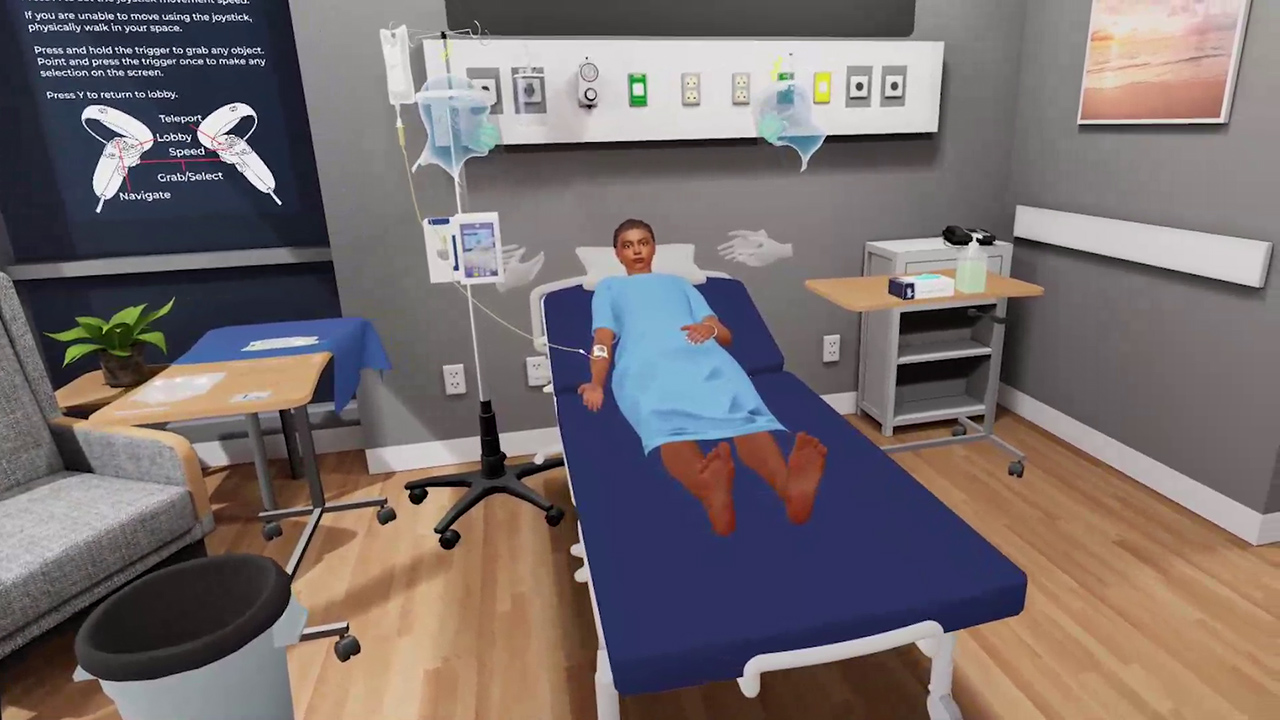
Assessment
Test acquired skills to perform the procedures from start to finish without prompts. An incorrect step will take the learner back to the start to start afresh.
- Live scoring
- Instant feedback
- Adequate affordances for efficient performance
- Time tracking to monitor activity completion
